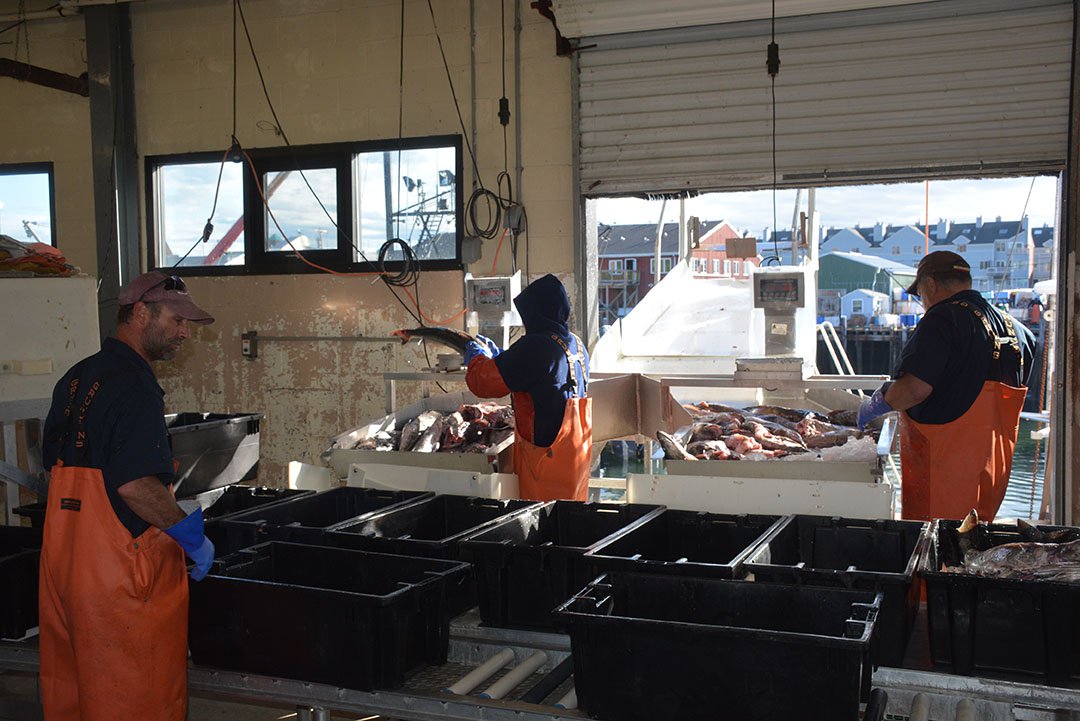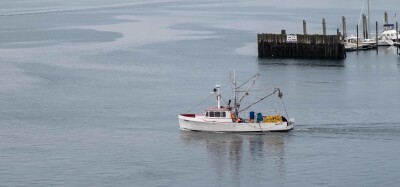When we set out to write Pillars of the Port City (NF, August 2016), I was excited to learn more about the working waterfront in the city I have called home for just a few years. An integral part of the city and its history, the waterfront in Portland, Maine, is constantly being forced to adapt to stay alive.
Over the past decade or so, boats have been leaving the harbor for ports in southern New England where it’s easier or more profitable to fish. The city is still home to around 250 lobster boats and a handful of draggers, gillnetters and longliners. And while the waterfront isn’t bustling year-round with maritime activity, fishing and fishing businesses are staples to the culture here.
Jes Hathaway and I surveyed various businesses around the city — from the historic Portland Fish Exchange and powerful science community at the Gulf of Maine Research Institute to emerging businesses like Bristol Seafood, kelp harvester Ocean Approved and the city’s ongoing entrepreneurial relationship with Iceland. There’s a lot, too much to put into one magazine feature. What we published was probably a third of the story we had on paper before cutting it to fit at deadline.
Luckily, there are other people in the community who are working to tell the story in their own way.
Galen Koch, a radio producer living in Portland, and partners have recently released a series of stories online titled “Wharfside: Stories From Portland Harbor’s Working Waterfront.” The ongoing audio-visual project, sponsored by the Waterfront Alliance and the Casco Bay Estuary Partnership, aims to advocate for protecting the working waterfront. While there are legal protections in place to keep maritime businesses on the wharves, Portland’s popularity as a growing arts and culture hub means fishermen are more often competing for space with new restaurants, offices for tech companies and arts attractions.
“It was a passion project because it’s something I really care about,” Koch told reporters from the Portland Press Herald. “Hopefully, it will get others to think about this place that we live in, beyond the shops on Commercial Street.”
Each segment of the ongoing project focuses on a business or person who makes a living on the waterfront. Koch brings us the stories of Jim Buxton, a lobsterman who keeps his boat Nomad at a berth at Merrill’s Wharf, and Gretchen Frank, the first mate senior designating deckhand on the ferry Machigonne II. She also profiles locations, like “the Desert,” an empty lot where groundfishermen stretch out and mend their trawl nets.
The working waterfront is a living, breathing environment made up of people from all walks of life. “Wharfside” is a really interesting look at Portland and makes you think about the other waterfronts across the country.







